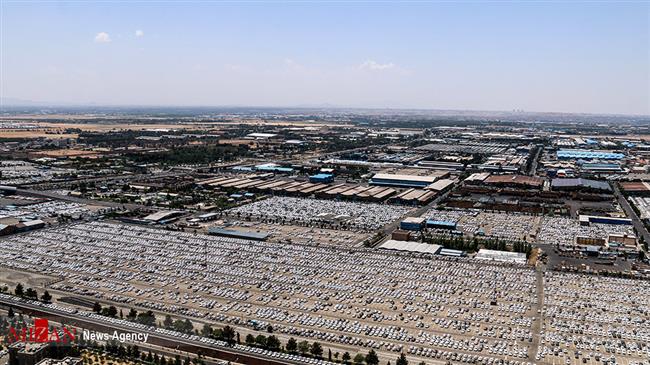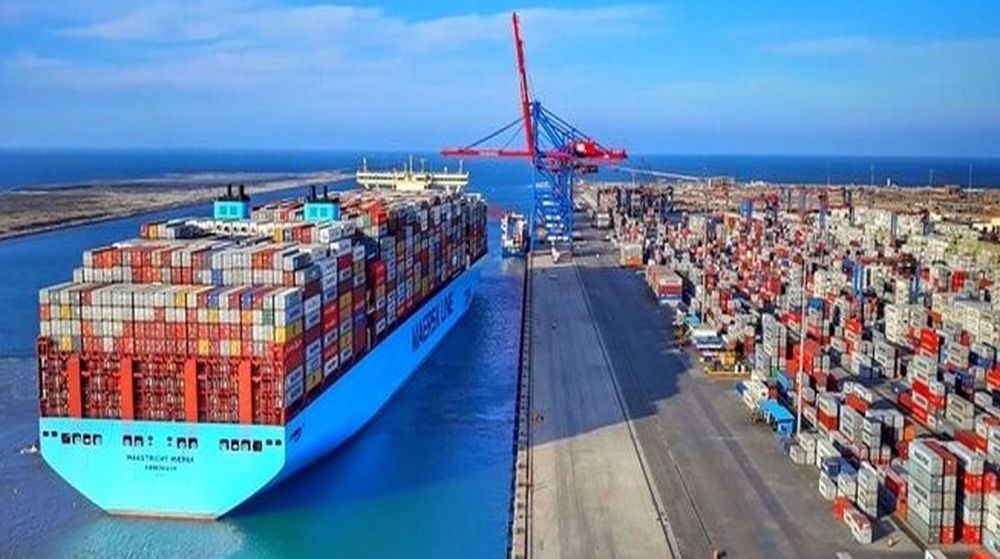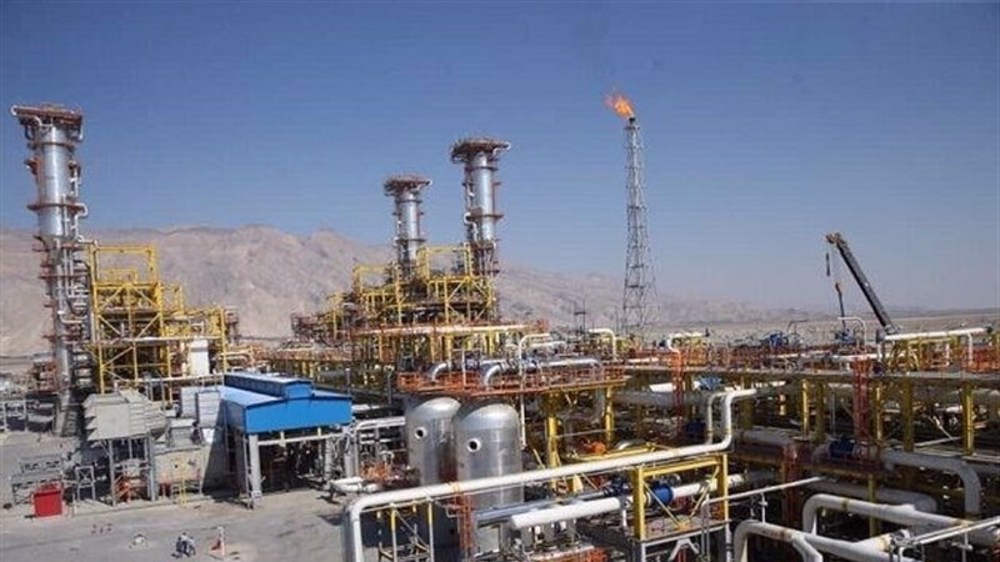Iran auto industry begins to absorb shock of US sanctions
Managing director of Iran Khodro (IKCO), the largest car maker in the Middle East, says Iran is now producing more than 50 auto parts which were imported.
“With the measures we have taken in the field of domestic production and self-sufficiency… we have been able to reduce more than $50 million in production costs and planned for another $300 million in reduced costs,” Farshad Moqimi said Tuesday.
When the US unleashed its most aggressive sanctions ever on Iran in August 2018, it reserved the first hammer blow for the car industry to hurt as many Iranians as possible.
The auto industry is a key driver of Iran's economy, the operation and prosperity of which keeps more than 60 other industries moving. The industry is only second to its energy sector, accounting for some 10 percent of the gross domestic product and 4 percent of employment.
“When the United States has targeted the automotive industry and started its sanctions from this sector, we must work together to maintain the flag of production in this industry flying high,” Moqimi said.
Iran began manufacturing its own car in 1967, churning out the box-shaped Paykan which was a replica of the British-made Hillman Hunter. It also imported mainly from Western Europe and the United States, which accounted for approximately 40 percent of Iran’s market.
However, the baby boom during the first decade of the Islamic Revolution of 1979 generated a young population which was almost 75 percent urbanized by 2017 and hungry for cars.
The post-war governments decided to give a new lease of life to the auto industry, because Iran could not afford to drop automotive sector altogether. The sector is so massive with its solid infrastructure in production, which holds both economic and political importance to the government.
However, they opted to stop manufacturing and start assembling instead, because they thought Iran could not compete with strong international carmakers.
International players, meanwhile, showed interest in the Iranian market and policies were put into place that allowed car imports without technology transfer.
France, a partner of Iran in the automotive industry for a long time, entered into new joint ventures with the two largest local manufacturers IKCO and Saipa.
To meet the demand, automotive production rose by more than 18 percent in 2017. Iran produced 1.4 million cars and commercial vehicles, ranking sixteenth in the world.
However, foreign companies that made cars in Iran — including France’s Peugeot and Renault — decided to leave after US President Donald Trump announced new sanctions on the Islamic Republic.
Renewed sanctions led to delays in car deliveries and a shortage of parts and by June 2018, a month after sanctions were renewed, car production dropped by 29 percent compared with the same month a year earlier.
Iran’s union leaders warned then that up to 450,000 jobs in the auto parts industry were on the line, prompting the defense ministry to wade into the quandary.
The ministry is now helping the Iranian carmakers manufacture hi-tech auto parts which Iran used to import.
Cars produced in Iran under license from foreign manufacturers rely on critical imports of parts ranging from airbags, pistons and cylinder heads to computer chips including engine control units and sensors.
Moqimi said IKCO has produced more than 172,000 cars since the beginning of the Persian year in March, up 36 percent against the period last year - meaning Iranian carmakers begin to find solutions to their parts bottleneck.
“A 30 percent increase in car delivery to customers is also one of Iran Khodro's recent achievements,” he said, adding 51,000 cars among more than 200,000 units not delivered on time have been released to their owners.
Iran has gone through waves of sanctions since the Islamic Revolution that have spilled over into daily life in the country of about 85 million.
On the flip side, the US pressures have been a boon to domestic manufacturers who have thrived under the new situation through mobilizing their resources to fulfill some of the tasks which were an exclusive competence of foreign companies.
More than 100,000 people are employed by IKCO and Saipa, while another 700,000 Iranians work in industries related to car manufacturing.
There are around 13 public and private auto manufacturers in Iran, with IKCO and Saipa accounting for about 94% of the domestic production.
Moqimi said Iran is now self-sufficient in some auto parts, “but we have a problem in supplying raw materials, and have to supply them from foreign sources,” adding domestic manufacturing of the raw materials should also be on the agenda.
VIDEO | Unseen agony: Missing loved ones of genocide in Gaza
Iran cuts gold import tariff to zero
Pezeshkian: Iran determined to develop, boost ties with neighbors
VIDEO | Israel, Hamas ceasefire agreement: Closer than ever
VIDEO | Gaza ceasefire to be put in place under resistance conditions
Hot water and sewage: Palestinians share harrowing tales of torture in Israeli prisons
VIDEO | Thousands evacuated in Ethiopia amid earthquakes, volcanic eruption fears
Revealed: Israeli ministers eye restoration of illegal settlements in Gaza through genocide











 This makes it easy to access the Press TV website
This makes it easy to access the Press TV website